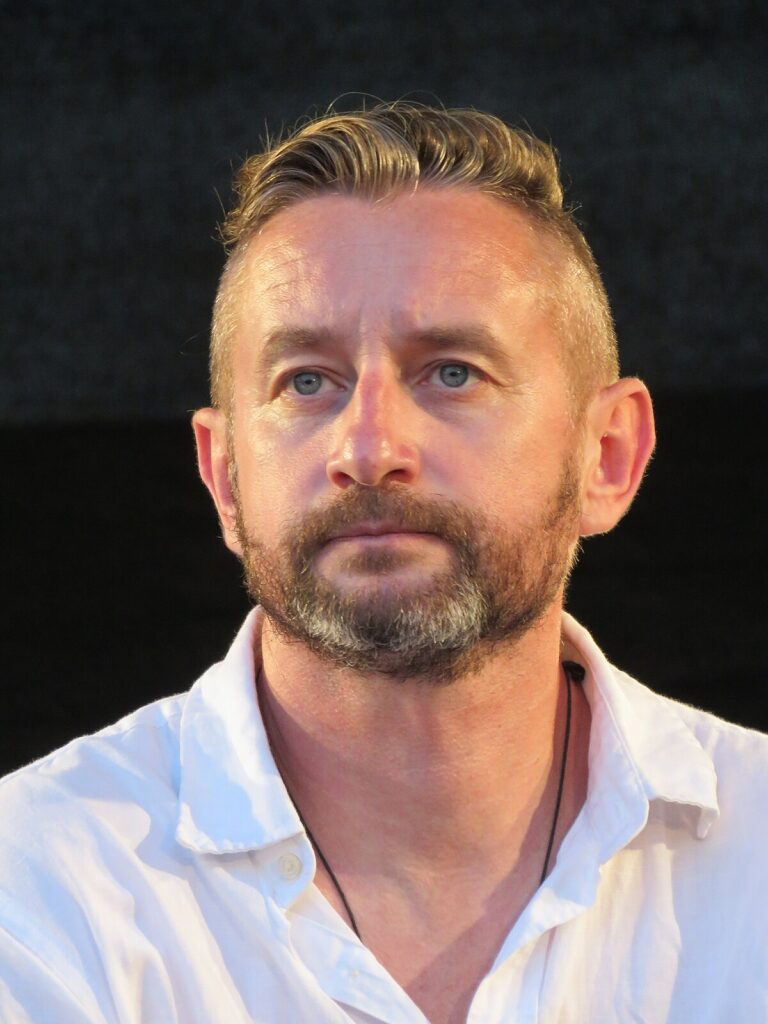Tuesday
Yale history professor Timothy Snyder, authoritarianism expert and Ukraine advocate, alerted me to the continuing importance of poetry in that country’s battle against Russia’s genocidal intentions. After all, as he points out, genocide
is not only about killing people, but about eliminating a culture, making it untenable by destroying the institutions that transmit it. Thus Russia burns books, steals museum artifacts, and bombs archives, libraries, and publishing houses. Russia deliberately destroyed the publishing houses in Kharkiv, including where one of my own books was being printed.
To achieve this end, Vladimir Putin appears to be willing to pour out the blood of his armies like water (to quote Queen Jadis in C.S. Lewis’s Magician’s Nephew). Snyder says that what Putin wants, as his missiles target civilians and civilian architecture in the northern Ukrainian city of Kharkiv, is “to instill a certain view of life. Nothing good ever happens. Be afraid at all times. Undertake nothing new yourselves. Give up.”
It may be true, as Irish poet Seamus Heaney once observed, that “no lyric has ever stopped a tank,” but poetry can push back against cultural genocide. It is therefore heartening that Ukrainian writers, including writers serving in the armed forces, have been productive. Snyder mentions the “extraordinary” Karkhiv poet and novelist, Serhiy Zhadan, whom I highlight today. In “Take Only What Is Most Important,” Zhadan captures the refugee experience:
Take Only What Is Most Important
By Serhiy Zhadan
Translated from the Ukrainian by Virlana Tkacz and Wanda Phipps
Take only what is most important. Take the letters.
Take only what you can carry.
Take the icons and the embroidery, take the silver,
Take the wooden crucifix and the golden replicas.
Take some bread, the vegetables from the garden, then leave.
We will never return again.
We will never see our city again.
Take the letters, all of them, every last piece of bad news.
We will never see our corner store again.
We will never drink from that dry well again.
We will never see familiar faces again.
We are refugees. We’ll run all night.
We will run past fields of sunflowers.
We will run from dogs, rest with cows.
We’ll scoop up water with our bare hands,
sit waiting in camps, annoying the dragons of war.
You will not return and friends will never come back.
There will be no smoky kitchens, no usual jobs,
There will be no dreamy lights in sleepy towns,
no green valleys, no suburban wastelands.
The sun will be a smudge on the window of a cheap train,
rushing past cholera pits covered with lime.
There will be blood on women’s heels,
tired guards on borderlands covered with snow,
a postman with empty bags shot down,
a priest with a hapless smile hung by his ribs,
the quiet of a cemetery, the noise of a command post,
and unedited lists of the dead,
so long that there won’t be enough time
to check them for your own name.
The name on that list may be you, Zhadan tells his readers–which is another way of saying that we Ukrainians are all in this together. It’s a sentiment like that expressed by John Donne: “Ask not for whom the bell tolls. It tolls for thee.”
By naming their plight, Zhadan gives people a sense of unified identity. They need not give in to solitary despair.


